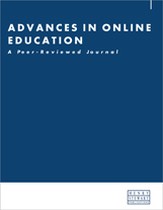Flipped classroom: Benefits and challenges
Abstract
Flipped classroom (FC) has been a popular subject of research in recent years. FC is a student-centred teaching method that enables learners to study the learning content at home and apply it in school through in-class activities provided by the teacher. This action research was conducted to determine the Grade 11 senior high school students’ attitude towards the FC, their perceived benefits of FC, the challenges they experienced in FC and their recommendations to improve its implementation. A total of 49 students, 18 males and 31 females, aged 16–20 years participated in this study. They were enrolled in the reading and writing skills subject and were taught using the FC model for 13 weeks, with one weekly synchronous online session of 1 hour and 15 minutes per session. The other days of the week were reserved for their pre-work and post-work activities. On the 14th week, a researcher-made attitude survey was administered to the respondents via g-forms. Their responses to Likert scale questions that measure their attitudes towards the FC were calculated using mean and their responses to open-ended questions were coded using Akcayir and Akcayir’s (2018) categories for the benefits and challenges. Findings show that students exhibited a positive cognitive, affective and behavioural attitude towards FC. In fact, they reported that they enjoyed the FC activities and learned many things using this teaching method. They also perceived that FC has several benefits such as increased knowledge, engagement, better retention of the concepts learned, better preparation before the class, and opportunities for flexible learning. They also recognised the challenges they had experienced during its implementation, however, such as limited preparation before the class and lack of interaction due to shyness and fear of negative evaluation from peers. With the perceived benefits of FC, educators can utilise this teaching method to promote engagement and learning achievement.
The full article is available to subscribers to this journal (subscription is free).
Author's Biography
Maria B. Cequeña is an educator, researcher, author, trainer and reviewer of some international Scopus-indexed journals. She earned her PhD in education (reading education) from the University of the Philippines Diliman and Master’s in literature from Ateneo De Manila University. She is currently the Academic Department Head of Catholic Filipino Academy Homeschool (CFAH). Prior to joining CFAH, she was a language educator, teaching English and research courses at De La Salle University, University of Santo Tomas, National University and Siena College Taytay. As a writer, she has co-authored high school English textbooks and a collection of poems. As a researcher, she has published a number of research articles on ESL writing, metacognition and reading comprehension in reputable journals. She has also presented these research papers at international conferences in San Antonio, Texas (USA), Hawaii, Rome, Thailand, Malaysia, Korea, Singapore and Hong Kong.
Niña Svetlana M. Mendoza is currently working as the Humanities and Social Sciences programme track adviser in the senior high school department of the Catholic Filipino Academy Homeschool. She is a licensed professional teacher and earned her Master’s in reading education from the University of the Philippines Diliman. She has over a decade’s experience of tutoring for non-government organizations that provide literacy programmes to underprivileged children, helping them apply theoretical best practice to tangibly improve the outcomes of the children.
Johnny T. Amora is currently the Director for Institutional Effectiveness and Research at De La Salle–College of Saint Benilde, Philippines. He teaches advanced statistics, measurement and analytics courses. He is the President of the Philippine Association of Researchers and Statistical Software Users (PARSSU). His research interests include the applications of statistics, measurement, and analytics models in the human sciences, business and education.
Citation
Cequeña, Maria B., Mendoza, Niña Svetlana M. and Amora, Johnny T. (2023, January 1). Flipped classroom: Benefits and challenges. In the Advances in Online Education: A Peer-Reviewed Journal, Volume 1, Issue 2. https://doi.org/10.69554/FSFW5559.Publications LLP
